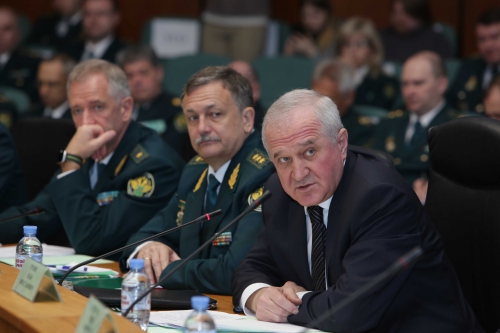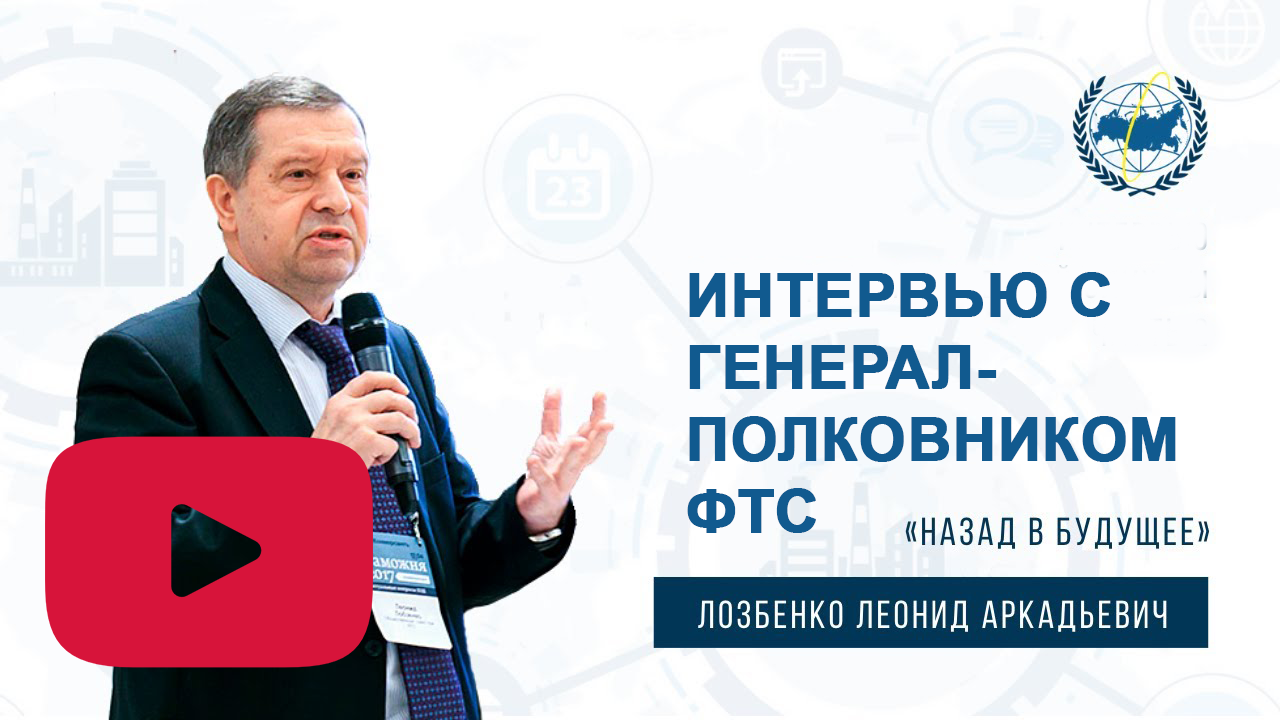
On April 23, 2019, the All-Russian meeting of customs authorities on topical issues of activity was held at the Federal Customs Service. The event was attended by the head of the Federal Customs Service of Russia Vladimir Bulavin, Deputy Minister of Finance of Russia Ilya Trunin, Director of the Tax and Customs Policy Department of the Ministry of Finance of Russia Alexey Sazanov, Deputy Head of the Federal Tax Service of Russia Daniil Egorov, the leadership of the Federal Customs Service of Russia, customs officials.
During the meeting, special attention was paid to the reform of the customs authorities – the creation of electronic customs and electronic declaration centers (ECDs). As of today, 3 electronic customs and 7 CEDs are functioning as part of the Federal Customs Service of Russia, in 2019 the Moscow Regional Excise and Aviation CEDs were launched.
Vladimir Bulavin: “The basis of the reform of customs authorities is the introduction of a digital platform. All further activities will depend on the convenience and dependability of its work. “
Deputy Minister of Finance Ilya Trunin noted that the transition to new formats of interaction in electronic form is a priority of all government bodies.
Ilya Trunin: “Like any other complex reform, the total digitization of processes should be carried out in the mode of continuous monitoring, discussion with stakeholders and adjustments, if necessary.”
The head of the customs service also stressed the importance of providing new e-customs authorities with professional personnel.
Vladimir Bulavin: “In order to increase the motivation of civil servants of the Center for Economic Achievements, measures have been taken to increase the amount of wages – to bring it to the average wage level of employees”.
During the meeting, reports were made by the heads of e-customs and the EACs. The main results were presented, as well as identified issues. The main work in the electronic customs authorities today is aimed at supporting the stable interaction of CEDs and customs posts of actual control.
Vladimir Bulavin: “It is important to ensure uninterrupted operations, optimize and speed up processes as much as possible, while maintaining an adequate level of control.”
The creation of the Main Data Processing Center of the Federal Customs Service of Russia will allow increasing the efficiency of the systems.
Georgiy Peschansky, Head of the Main Directorate of Information Technologies at the Federal Customs Service of Russia: “The overwhelming amount of computational processes of stored information will be centralized. Currently, the software is being processed and the number of software (PS) is being reduced – the remaining PS will focus on the main activities of the customs authorities. ”
Separate attention at the meeting was paid to the issues of improving operations at sea checkpoints. The prospects for organizing a single information space in ports — an electronic platform for the interaction of B2B systems and G2G — to ensure effective interaction between government authorities and business are indicated.
Another topic for discussion was the issue of modernization of the institution of the Authorized Economic Operator (AEO). In particular, the possibilities for encouraging low-risk organizations to obtain AEO status were considered.
Sergey Amelyanovich, First Deputy Head of the General Directorate of Customs Clearance and Customs Control: “The AEO status gives companies a number of technological advantages and simplifications. Combining the “green sector” of business, which today includes about 9 thousand organizations, and an AEO will contribute to the overall denial of the activities of traders. ”
The transition to a paperless environment made it possible to automate the process of collecting debts on the payment of customs duties. The interaction of customs and companies-payers today is based on the technology of “single window”.
Elena Yagodkina, Head of the General Administration of Customs Revenues and Tariff Regulation of the Federal Customs Service of Russia: “Administration of all facts of debt by one customs optimizes this process and reduces the burden on customs officials.” The head of GUFTDITR also stressed that the efficiency of debt repayment is directly dependent on the initiative of the participants of foreign economic activity. Today, companies can track the size of their debts online via the “Personal Account of the Foreign Economic Activity Participant”.
Elena Yagodkina: “Promptly informing companies about the facts of non-payment of customs payments contributed to an increase of 11% in the amount of money voluntarily paid by declarants to pay off debt.”
Подводя итоги совещания, руководитель ФТС России обозначил приоритетные направления совершенствования деятельности таможенных органов.
Vladimir Bulavin: “In order to increase the efficiency of work, it is necessary to staff electronic customs and CEDS with professional personnel, ensure sustainable operation of information systems, and also maintain an ongoing dialogue with the business community.”
Source: tks




